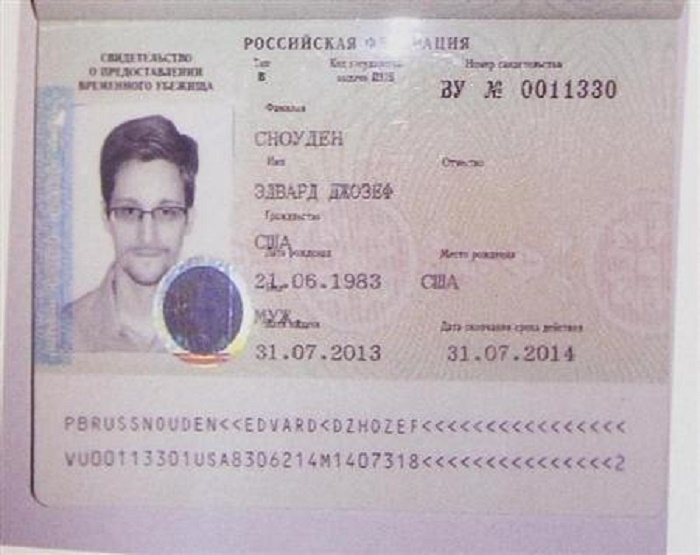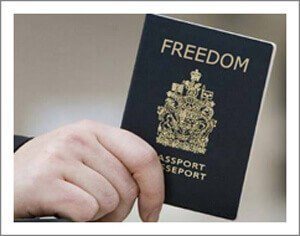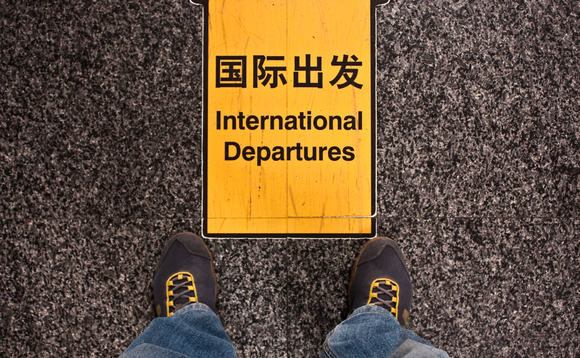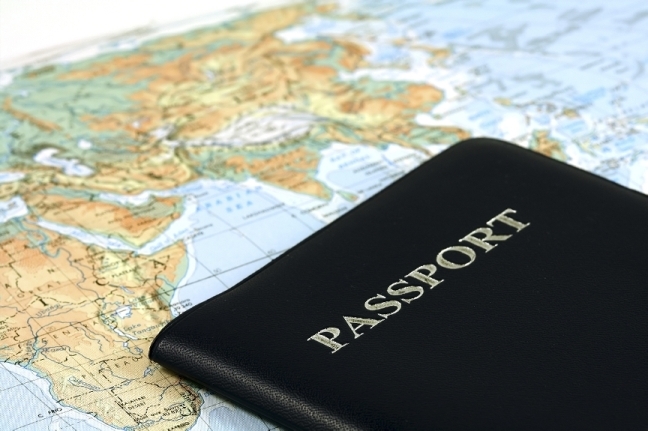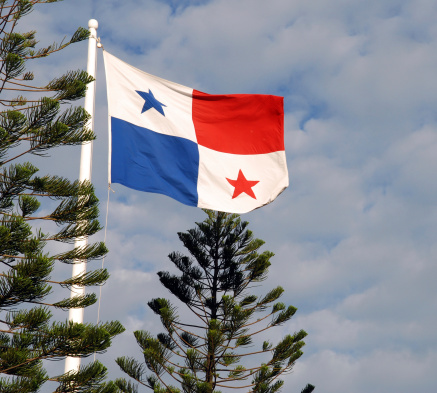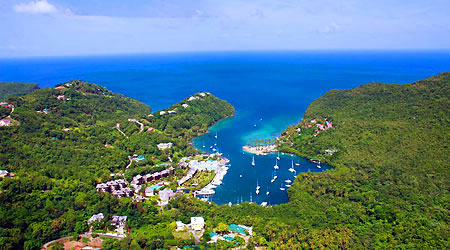Russian Second Passport and Citizenship
Russia will begin offering second passports and economic citizenship in early 2015. The law authorizing citizenship by investment was passed on June 23, 2014 and we await its implementation. Expect second passports to be issued by Russia in the next few months.
This is the first world power to offer a second passport or economic citizenship by investment. And the costs are lower than passports from Caribbean islands. Here’s what you need to know to get a second passport from Russia.
Introduction to Second Passports
Let me take a minute to review second passports with you. There are several ways one can gain citizenship, and thus a passport, from another country.
- If your parents or grandparents were born in certain European countries, you might be able to get citizenship by lineage / descent.
- You can move to a number of countries, live there for 7 to 10 years, and apply for citizenship.
- You can usually marry a citizen and qualify for citizenship. Though, this is not always guaranteed, so read the fine print first!
- You can (legally) purchase a passport from countries such as Dominica and St. Kitts.
- You can make an investment in to a few countries and receive citizenship.
It’s this last option Russia is offering. Start a business, or invest in a company and bring with you a needed skill, and gain citizenship within three years. And you will get residency in the interim.
So, if you have a profitable business and dreams of “pulling a Snowden,” Russia is calling.
Visa Free Travel with a Russian Passport
We usually value a passport by the number of visa free countries it offers. Using this criteria, a second passport from Russia is one of the best.
A person traveling on a Russian passport may visit 78 countries visa free. Plus, another 35 will issue a visa upon arrival and 9 will grant an electronic visa. So, by my count, about 122 countries are easily accessible.
Some “easy access” countries are:
- Brazil,
- Chile,
- Colombia,
- Costa Rica,
- Cuba,
- South Korea,
- Mexico,
- Most of the Caribbean,
- Panama and
- Hong Kong.
I note that this list is based current published data (last updated Nov. 2014). I expect there will be changes in the coming months. For example, Ukraine might not allow visa free travel any longer.
Investment Requirements
Per sections 1(g) and 1(h) of the statute below, there are two paths to a second passport by investment in Russia.
The first is for the entrepreneur or self-employed individual. Move your business to Russia and, if your taxable profits from that business are 10 million rubles or more over in each of the next three years, you will earn citizenship.
The second is for a specially skilled worker who invests in to a large business. Invest 10 million rubles, own at least 10% of the total shares after the investment, with a total capitalization of at least 100 million rubles, and pay taxes of at least 6 million rubles per year for three years, and you will qualify for citizenship.
At the time of this writing (February 19, 2015), 10 million rubles is about $162,000 US dollars and 100 million rubles is about $1.6 million USD.
So, start a business in Russia that has net profits of $161,000 and you qualify for a second passport as a self employed businessman.
Otherwise, you can buy at least 10% of a business with total capital of $1.6 million and which pays $161,000 per year in taxes. This second option can be done as an investment group or as an individual. For example, you could invest $2 million and own 100% of the shares. To qualify under this section, you must also be bringing an important skill with you in to the country.
But remember, it’s not just about the investment. Your business must be profitable for the three years preceding your application for citizenship. You will need to hit the ground running and earning to hit these numbers.
I also note that one reason this is such an attractive program is the strength of the dollar vs the ruble. Don’t expect that to last for more than a couple of years. But, while it does, $161,000 compares favorably to a St. Kitts citizenship which costs anywhere from $250,000 to $450,000.
Get a Free Passport from Russia
Here’s some food for thought: One could say that the second passport and economic citizenship program offered by Russia is free. That’s right, you can get a second passport from Russia for free! In fact, you might even make a PROFIT from your new passport.
Before you assume I’ve been hitting the vodka a bit too hard, here’s my reasoning:
You will pay tax on your business profits to one country or another. The only thing certain is death and taxes. So, you can buy a second passport from St. Kitts or you can move your business to Russia, pay some of your taxes to that country, and earn a second passport on the side.
Let’s say you’re operating a successful internet based business in Silicon Valley and your total US tax obligation is 40%. If you take a salary of $300,000, you’re paying $120,000 in taxes. Bump those profits up to $1 million and you’re paying $400,000 in US taxes.
Even if you move your business offshore and qualify for the Foreign Earned Income Exclusion, only the first $100,000 is tax free. If you take $300,000 in salary, you will pay about $60,000 for the right to hold a US passport. Take $1 million and pay $300,000 (I’ve assumed State taxes don’t apply). For more on this, see my post Foreign Earned Income Exclusion 2015.
Taxes in Russia on $300,000 in salary are $39,000. Taxes on $1 million in wages is $130,000. See details below.
If you move that business to Russia and renounce your US citizenship you pay nada to Uncle Sam. Brave the Russian winter to pay less in taxes and get a passport for free!
Taxation in Russia
You may elect to be treated as a foreign national and non-tax resident of Russia during your first three years before citizenship is granted. To avoid becoming a tax resident, you shouldn’t spend more than 183 days in country during any 12 month period.
A non-resident is taxed on their Russian sourced income as follows:
- Ordinary income from within Russia: 30%. If you obtain a visa as a “highly skilled specialist,” this is reduced to 13%.
- Dividends from Russian companies: 15%
- Gains from real estate are taxed at 30%
If you become a tax resident of Russia during those 3 years, and once you receive your passport, you’ll pay Russian tax on your worldwide income as follows:
- Ordinary income: 13% – also applies to most other types of income such as short term capital gains
- Dividends from Russian companies: 9%
- Long term capital gains in real estate (property held for over 3 years) is tax free.
Russia operates on a flat tax. They deduct either 13% or 30% from your pay and 9% or 15% from dividend payments.
Therefore, if you give up your US citizenship and become a Russian passport holder, you’re exchanging America’s 40%+ ordinary income rate and 23.8% long term capital gain rate for Russia’s 13% flat tax and long term property exemption.
If you’re a high net worth non-resident, you might negotiate a tax contract along with your citizenship. For example, you might agree to pay $300,000 per year in taxes regardless of your worldwide income. I’ll leave this one for another day.
I hope you have found this post helpful. Please phone me at (619) 483-1708 or email Christian Reeves at info@premieroffshore.com with any questions.
Russia’s Second Passport Statute
Here is an an English translation of Russia’s second passport and economic citizenship program. The original (for those of you who can read Russian) is at http://www.consultant.ru/popular/civic/34_2.html#p172
This post covers 1(g) and 1(h) only.
1. Foreign citizens and stateless persons residing in the territory of the Russian Federation, may apply for admission to Russian citizenship in a simplified manner without observing the conditions of the period of residence specified in paragraph “a” of the first part of Article 13 of this Federal Law, if these citizens and persons:
a) were born on the territory of the RSFSR and had the nationality of the former Soviet Union;
b) are married to a citizen of the Russian Federation for at least three years;
c) are unable to work and have a capable son or daughter under the age of eighteen years and who are citizens of the Russian Federation;
d) have a child who is a citizen of the Russian Federation – in case the other parent of the child who is a citizen of the Russian Federation, died a court decision which entered into force, declared missing, incapable or limited in capacity, deprived of parental rights or restricted parental rights; (introduced by Federal Law of 28.06.2009 N 127-FZ)
e) have a son or daughter under the age of eighteen years who are citizens of the Russian Federation and the decision of the court, which entered into force, recognized as incapable or limited in capacity, – if the other parent said citizens of the Russian Federation, a citizen of the Russian Federation, has died or a court decision, which came into force, declared missing, incapable or limited in capacity, deprived of parental rights or restricted parental rights; (introduced by Federal Law of 28.06.2009 N 127-FZ)
f) received after July 1, 2002 vocational education in basic professional educational programs, state-accredited, educational and research institutions of the Russian Federation in its territory and carry out work in the Russian Federation in the aggregate not less than three years before the date of the application for admission the citizenship of the Russian Federation; (introduced by Federal Law of 23.06.2014 N 157-FZ)
g) self-employed and carry on business in the Russian Federation for at least three years preceding the year of the application for admission to citizenship of the Russian Federation, and in this period of their annual revenue from the sale of goods (works, services) as a result of doing business in established by the Government of the Russian Federation economic activities is not less than 10 million rubles; (introduced by the Federal Law of 23.06.2014 N 157-FZ)
h) are investors, whose share of the contribution in the authorized (share) capital of a Russian legal entity operating in the territory of the Russian Federation established by the Government of the Russian Federation economic activities, is not less than 10 percent. The size of the authorized (share) capital of such entity and the size of its net assets must not be less than 100 million rubles each or the amount paid by such entity tax to the budget system of the Russian Federation and mandatory insurance payments must be at least 6 million rubles a year on for at least three years from the date of investment; (introduced by Federal Law of 23.06.2014 N 157-FZ) and exercise at least three years prior to the date of the application for admission to citizenship of the Russian Federation labor activity in the Russian Federation in the profession (specialty positions) included in the list of professions (specialties, positions) of foreign nationals – qualified professionals who are entitled to receive Russian citizenship in a simplified manner approved by the federal executive authority responsible for the formulation and implementation of public policy and legal regulation in the sphere of employment and unemployment. (“And” introduced by the Federal Law of 23.06.2014 N 157-FZ)
2. Foreign citizens and stateless persons permanently residing lawfully in the territory of the Russian Federation, recognized native Russian speakers in accordance with Article 33.1 of this Federal Law, may apply for admission to the citizenship of the Russian Federation under the simplified procedure, provided that the said citizens and persons:
a) undertake to comply with the Constitution of the Russian Federation and the legislation of the Russian Federation;
b) have a legitimate source of livelihood;
c) abandoned their existing foreign citizenship. Renunciation of citizenship of a foreign state is not required if provided for by international treaty of the Russian Federation or if the renunciation of citizenship of a foreign country is not possible through no fault on behalf of causes. (Federal Law of 23.6.2014 N 157-FZ , from 14.10.2014 N 307-FZ )
3. Disabled foreign citizens and stateless persons who arrived in the Russian Federation from countries that were part of the Soviet Union, and the registered place of residence in the Russian Federation as of July 1, 2002, may apply for admission to the citizenship of the Russian Federation in the simplified order without complying with the conditions of the period of residence in the territory of the Russian Federation specified in paragraph “a” of the first part of Article 13 of this Federal Law, and without presenting a residence permit.
4. Foreign citizens and stateless persons who had citizenship of the USSR, arrived in the Russian Federation from countries that were part of the Soviet Union, and the registered place of residence in the Russian Federation as of July 1, 2002 or to obtain a temporary residence permit in the Russian Federation or residence permit shall be adopted Russian citizenship in a simplified manner without observing the conditions stipulated in paragraphs “a”, “c” and “d” of the first part of Article 13 of this Federal Law, if they are before 1 July 2009, stated their wish to acquire citizenship the Russian Federation. (Federal Law of 03.01.2006 N 5-FZ , from 01.12.2007 N 296-FZ , from 30.12.2008 N 301-FZ )
5. In the citizenship of the Russian Federation shall be adopted in a simplified manner without observing the conditions stipulated in paragraphs “a”, “c”, “d” and “e” of the first part of Article 13 of this Federal Law, and without presenting a residence permit veterans of Great Patriotic War had the nationality of the former Soviet Union and residing in the territory of the Russian Federation.
6. The citizenship of the Russian Federation shall be adopted in a simplified manner without observing the conditions stipulated by the first part of Article 13 of this Federal Law, the child and the incapable person who are foreign nationals or stateless persons:
a) a child, one of whose parents is a citizen of the Russian Federation – at the request of the parents and with the consent of the other parent on the child’s acquisition of citizenship of the Russian Federation. Such consent is not required if the child resides in the territory of the Russian Federation;
b) the child, a single parent is a citizen of the Russian Federation – at the request of the parent;
c) a child or incapable person under guardianship or custody of a citizen of the Russian Federation, except as provided for by Part 1 of Article 13 of the Federal Law of April 24, 2008 N 48-FZ “On guardianship” (hereinafter – the Federal Law “On guardianship “) – at the request of a guardian or trustee; (Federal Law of 20.04.2014 N 72-FZ)
d) a child placed under supervision in the Russian organization for orphans and children left without parental care, except as provided by paragraph 2 of Article 155.1 of the Family Code of the Russian Federation – at the request of the head of the Russian organization that placed the child; (introduced by Federal law from 20.04.2014 N 72-FZ)
d) incapable person placed under supervision in the Russian educational organizations, medical organizations, organizations providing social services, or another Russian company, except as provided by Part 4 of Article 11 of the Federal Law “On guardianship” – at the request of the head of the Russian organization that is placed incapable person.

